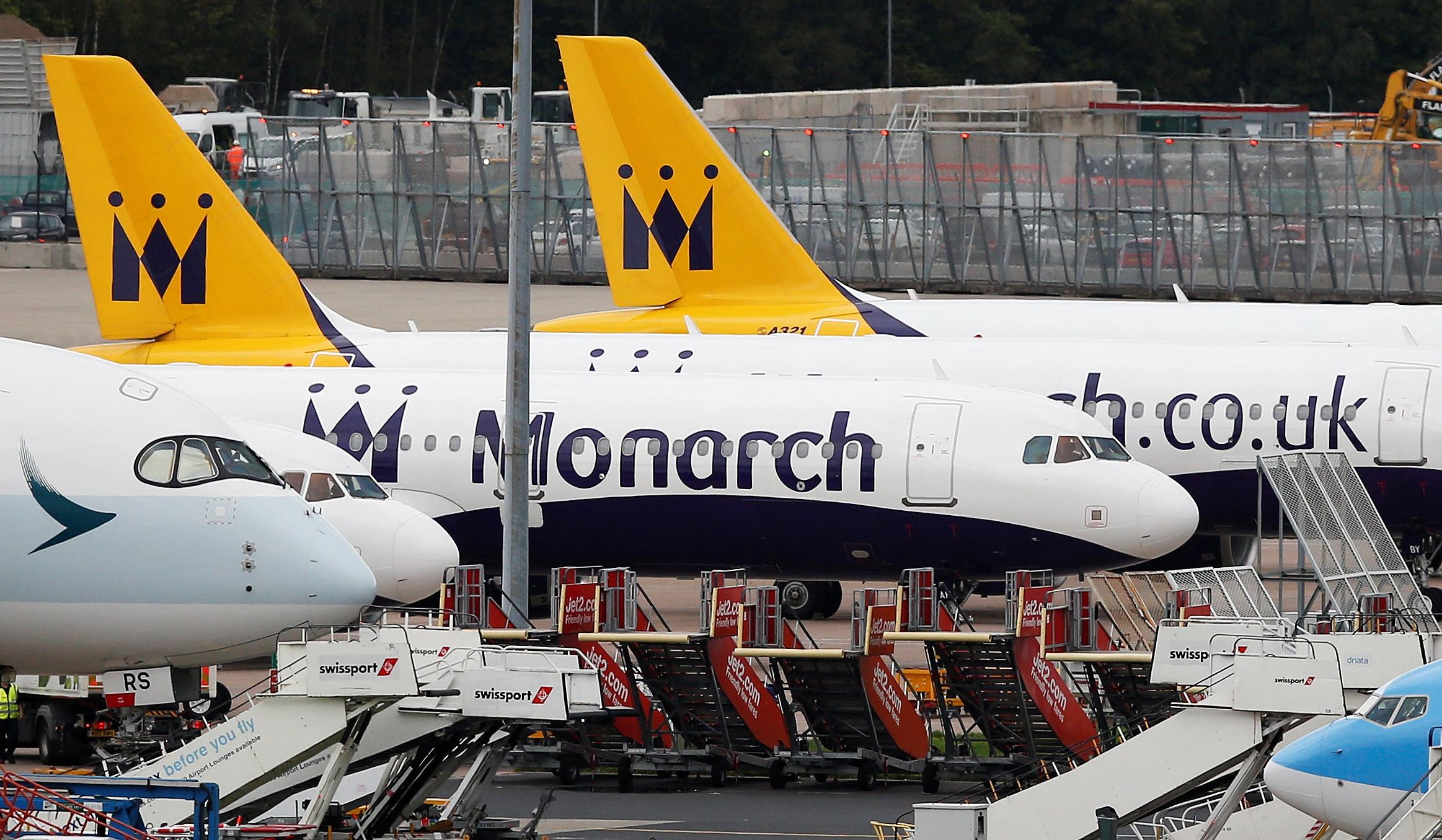Monarch collapse: What's it like to fly home on a CAA replacement plane?
The pop-up airline getting Monarch passengers home has been a smooth operation

“I got a phone call from my mother,” says Sam Wood from Cumbria. “She was going spare, thinking I wasn’t able to get here.”
He has just touched down from Barcelona at Birmingham airport on Qatar Airways - not a journey he had ever intended to make. Mr Wood is one of 110,000 Monarch passengers who were abroad when they discovered their airline had gone bust. But of all the parties affected by the Monarch collapse, he and his fellow travellers are the fortunate ones.
The taxpayer stumped up £60m to get them home. A “pop-up airline” mimics the Monarch schedule, with an odd assortment of planes orchestrated by the Civil Aviation Authority (CAA). The authority sourced “every single viable aircraft”, according to Peter Drissell. He is the CAA’s Director of Security, but right now is wearing a high-visibility jacket and holding up a sign at Arrivals aimed at passengers who have arrived from Barcelona on the smart Qatari Airbus.
Twenty-seven other airlines have been drafted in. Their aircraft range from an elderly A310 belonging to Air Transat of Canada to a Jumbo jet in the colours of Wamos. None of the passengers has any choice about which plane they get, but top prize is a Qatar Airways jet. With much of the airline’s short-haul operation currently erased due to geo-political conflict in the Gulf, there are plenty of spaciously configured aircraft to stand in for Monarch.
“The plane was only half-full,” reports Sam Wood. "Super-comfortable, they gave us food on the flight. Everyone was really nice.”
The pop-up airline, which I call CAAir, is coordinated by means of a WhatsApp group. And it is just one part of a complex operation to get everyone where they need to be. Travellers originally booked into airports from Gatwick to Leeds Bradford, but to reduce the amount of flying some flights have been “consolidated“ into Birmingham airport - chosen to minimise the maximum onward road journeys.
Buses are waiting outside for passengers whose intended destination was Manchester airport. Like the flight, Sam Wood’s coach journey is free.
“It’s kind of been a positive experience in a way. I spend a lot of time in Spain. Most of my friends are from the international community, and they’ve said to me that their countries would not have repatriated people in the way that the UK has done.
“For the UK to step up and just repatriate everyone just like that, without us having to pay anything, is amazing.”

Across from Arrivals, a Monarch desk stands forlorn. Behind the counter is a jumble of the airline’s baggage gauges. They, along with nearly 2,000 staff, are now redundant.
The Monarch collapse is rippling through the aviation industry. Some enterprises - notably the bought-in airlines and coach companies - have done very well out of the operation, but there are many more losers.
The pop-up airline itself will close down on Sunday, and on that day 60 ground staff at Birmingham airport who were assigned to Monarch will lose their jobs.
Peter Drissell returns to his day job in central London on Monday morning, after an extraordinary two weeks of airline management. The biggest disruption to the hastily drawn-up plans was Tuesday’s strike by French air-traffic controllers. The awkward squadron's stoppage scuppered the journeys of more than 100,000 passengers across Europe - and triggered a 22-hour shift for the CAA’s Director of Security.
All the passengers I meet at Birmingham speak warmly of the CAA’s operation. Jasmine Hyland, about to board the bus to Manchester, says: “It was absolutely fine. I went online, the website did exactly what it said.”
Poignantly, as we are speaking, the last-ever Monarch aircraft to leave Birmingham takes off. Like the airline, the 16-year-old Airbus A320 has gone west - with the plane flying to Reykjavik before heading for either the scrapyard or the California desert to join the ranks of other fleets whose luck, and cash, ran out.
Yet with a cash injection from the taxpayer of £60m, Monarch could have stayed aloft for a good few months.
Join our commenting forum
Join thought-provoking conversations, follow other Independent readers and see their replies
Comments
Bookmark popover
Removed from bookmarks